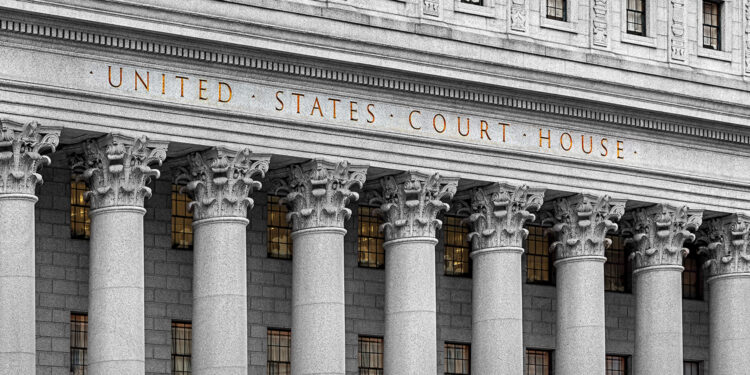Byline: Morgan Taylor/Multimedia Producer
WASHINGTON D.C. – A date has been set for the case Haaland v. Brackeen to examine the constitutionality of the Indian Child Welfare Act (ICWA) on Nov. 9.
The high court will determine whether the ICWA placement preferences violate the U.S. Constitution. The court will consider ICWA law, which disfavors non-Indian adoptive families in child-placement proceedings involving an “Indian child,” and whether the law further disadvantages those children; and whether ICWA’s placement preferences exceed Congress’s Article I authority by overrunning the grounds of child placement; or the “virtually exclusive province of the States,” as stated in Sosna v. Iowa.
The summer recession has ended for the U.S. Supreme Court as they started reviewing amicus briefs filed for upcoming cases. Arguments begin on the first Monday of October each term.
Amicus briefs were filed by August to be considered for review by the Supreme Court of the United States, with a total of 21 pro-ICWA briefs by native and non-native people and organizations that vary from perspectives of legality and personal stories. The support of 497 tribal nations, 62 native organizations, 20 states along with DC, 87 congress, and 27 child welfare and adoption organizations are included in Amici Curiae (a person or group not a party to an action but has a strong interest in the matter).
The decision of the case can potentially cause a threat to Native children and their families, inclduing the future of the Tribal Nations. Without the provisions of ICWA, the government’s policy to assimilate Indian tribes using their children as targets can continue by separating children from their families and tribes just as it was during the boarding school era.
Congress enacted ICWA in 1978, just short of a decade to the end of the boarding school era, because native children were still being dismantled from their culture by being forcibly removed from their community. The court determined that if Native American children had different interests than the non-native child, including differences in culture and stability for the child meant keeping the cultural influence in their lives.
Studies proved that at least 25-35 percent of native children were removed from their homes to boarding schools or non-native foster homes and involved in adoptions with non-native families before the Act.
When adoption is considered, the implementation of ICWA is critical in the matter of displaced Indian children facing stigmas at an already much higher rate than the other displaced children. Research shows that children who are connected to their culture and identity have higher positive outcomes, higher self-esteem and higher academic achievement, which are critical success factors. ICWA places kids with their extended families or communities when possible, which is considered best practice by child welfare experts. ICWA ensures that this decision is given careful consideration so that the unique needs of Native children are met.
The Children and Family Services Director Ann Davis gave an ICWA update to the MCN National Health Education and Welfare Committee on Sept. 14. With less than a year in her capacity, Davis has helped to ramp up programs within the department with ICWA provisions in mind.
Her team makes sure families get what they need.
“We have our state reunification team, which is responsible for those cases involving Muscogee (Creek) children involved in the state court system throughout Oklahoma and making sure that Muscogee families receive what they need and that the protections of the ICWA are provided,” Davis said.
According to the department manager, Stephen Wahnee, once their department gets involved, they find that the children are unaware of their tribal membership status.
“It is our job to educate them on that,” he said.
The programs provide packages, frequent contact, and home visits to ensure that ICWA provisions are handled and keep children and foster families informed on cultural events.
The MCN ICW programs aim to follow these guidelines to help strengthen and preserve the Mvskoke tribe and culture by protecting the Mvskoke children.
This is a developing story.





